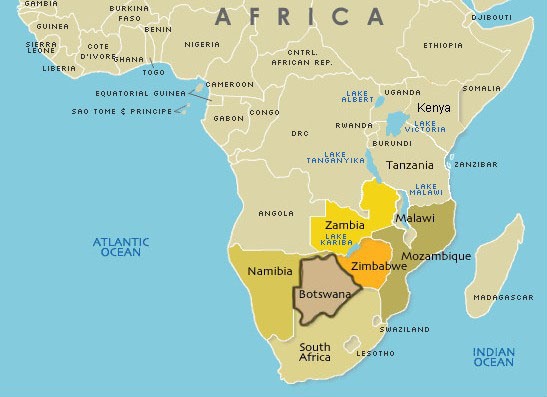
Published: April 5, 2006
By: Oarabile Mosikare
FRANCISTOWN: Acting High Court judge Modiri Letsididi sentenced two ritual killers to a total of 27 years imprisonment yesterday. The judge said Thuri Poicho and Njayi Kamuanga were under the influence of alcohol when they committed the murder. He said he had considered everything submitted on their behalf by their attorneys Charles Tlaagae and Muriro Furusa.
“Both accused were influenced by immaturity and had pleaded guilty to the charge. That show contrition and remorse on their part,” said Letsididi.
He added that Poicho was a first offender and has no previous conviction. He noted that the accused persons have been in custody since August 2001 and the charge has been hanging on their heads ever since. The judge commented that the two have lost their previous employment as herdsmen as a result of the offence. He noted that the accused persons did not benefit from the ritual killing ordered by a certain Ntshemang. However, he said the court is duty bound to protect society and the sanctity of life. “This court should demonstrate to the society that such crimes should not be tolerated. Both accused persons participated in unprovoked assault of the deceased, cutting his private parts and tongue in order to gain. In my view, there is no worst crime than this,” said the soft-spoken judge. He noted that Kamuanga has a previous conviction for a crime committed two months before the ritual murder. Therefore, he sentenced him to 14 years and gave Poicho 13 years for the ritual killing of Aaron Phobe.
On Monday, state counsel Keneilwe Lephalo said one Ntshemang approached the convicts and showed them a lot of money if they gave him the private parts of a human being. He promised them P8 000 for the job. They then conspired to kill Phobe and get the organs. “They assaulted him with a knobkerrie on the head until he fell unconscious on the ground. They removed his tongue and genitals and then delivered them to Ntshemang who had packed his vehicle in the bush who promised to pay them P8,000 the next day,” she submitted.
The investigations led to the arrest of Poicho on August 14, 2001 at Nnyambesi cattlepost and Kamuanga at Satau cattlepost. “They were taken before a judicial officer Phetsolo Nare, where Kamuanga was the only one who deposed a confession statement. In so hitting the deceased with a knobkerrie, they intended to cause his death. They acted unlawfully and had no lawful justification for their conduct,” submitted Lephalo.
Immediately after the judge was satisfied that the accused’s plea was unequivocal, he asked the two defence attorneys whether there are any extenuating circumstances in the case. They adopted the same submission that P8,000 offered by Ntshemang was a fortune for their clients who are herdsmen and the amount had a bearing on their reasoning. In mitigation, Poicho’s attorney Tlaagae submitted that his client was unknown in criminal circles and the court should impose a sentence that would give him a chance to rehabilitate.
“He pleaded guilty, and acknowledged to the society that what he did was morally and legally wrong. He benefited nothing from P8,000 they were supposed to be paid and they never saw Ntshemang again,” submitted Tlaagae. He urged the court to impose a sentence that would not break the accused. Mitigating on behalf of Kamuanga, Furusa submitted that the court should take into consideration the personal circumstance of his client. He said Kamuanga confessed at the time of his arrest and thus saved valuable time for investigating officers and court. “He was incited by allegedly rich person to commit this crime. Ntshemang was never prosecuted and the accused has to bear punishment on behalf of Ntshemang,” said Furusa.
Source: Ritual killers get jail sentences

